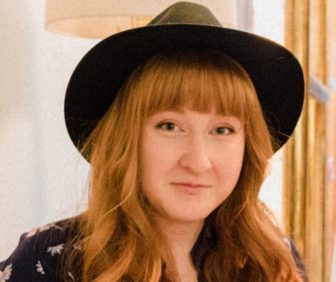
Chris Benson/Unsplash
.
There’s a moment in every great story when it seems that all is lost: the Ministry has fallen, the Rebellion has been reduced to almost nothing, the Avengers have failed to stop Thanos. We love stories like this — not just stories about people doing good, but stories about them doing good in the face of odds that seem insurmountable. Stories that are epic in nature.
We don’t just consume epic stories in books, television and movies, but in games, too. Game researcher Jane McGonigal describes the epic win as one where success seems just short of impossible, the kind of gaming mission that feels anxious, even scary, but urgent; one that requires intense focus and cooperation. But the moment of success? That’s the thing that keeps gamers coming back again and again. It’s the moment that keeps us addicted to epic stories.

Janae Phillips
Leadership, civic engagement, social justice — in our world, these are the powerful tools that change the quest. They form the backbone of the epic stories of our times, the fights for rights, the rebellions faced with seemingly insurmountable odds but who emerge victorious.
So why do we make them so boring?
Seriously, think about the ways we present leadership and service to youth. Collect these canned goods for extra credit. Clean up this park because service hours look good to colleges. Volunteer here because it’s the right thing to do. How often do we shroud service in a sense of shame? Another checkbox to guarantee their success and survival as someday-adults?
And how often do we connect these actions to anything of substance? You’re volunteering at a soup kitchen, sure, but why is that soup kitchen there in the first place? You’re cleaning up a park, but why? By the time youth are old enough to vote we’ve thoroughly separated acts of service from any sense of root causes, and then wonder why voting is not understood as important.
We are robbing youth of their own epic stories. It’s no wonder they love to spend time immersed in others’.
Flipping community activism
But we can shift that narrative, and we can use those same stories as our source of inspiration. For the last 13 years, the Harry Potter Alliance has drawn parallels between beloved pop culture and real world problems in order to engage otherwise disengaged fans. Thousands of youth in 38 countries around the world have learned how to advocate, built confidence and become leaders in their communities through channeling their love of stories into real problems. In fact, half of chapter organizers have never participated in activism before joining the HPA; within one year, 99 percent of those same organizers have.
It might look like this: After learning that not all Harry Potter chocolate was fair trade, and discussing the effects of child slavery on chocolate’s ability to protect from dementors (spoilers: it’s bad), hundreds of thousands of fans petitioned Warner Brothers to change. After four years of campaigning, all Harry Potter chocolate is now fair trade.
Or it could look like this: While immigrants are systematically discriminated against in the United States, there’s an undocumented immigrant who’s a beloved household name: Superman. Fans across the U.S. shared why they, too, were immigrant heroes.
Or maybe this: In the Hunger Games, the Capitol keeps the Districts under control by keeping them systematically impoverished; and of course, that happens in our world, too. Fans raised the three-finger salute and distributed information at movie screenings around the nation to draw attention to Fight for Fifteen’s campaign for livable minimum wage.
Let’s go back to that park cleanup — what if it wasn’t just an hour of picking up trash? Keeping a park beautiful isn’t just about cleanliness, it’s a fight for public space, for the right to communal spaces. Trash doesn’t spontaneously appear, it’s a symptom of unsustainable practices by corporations that are polluting our planet, and that is the biggest fight for the right to public space that there is. The park cleanup is this hour’s battle, but it’s part of a much bigger story that youth can be a part of.
When youth unlock that story, when they see the role they play within it, that’s when the magic happens; that’s when we see them raising their voice, leading walkouts, organizing aid. The more we can connect them to their story, the more magic we’ll see — and the better our world will be for it.
The stories we tell aren’t just for entertainment, they’re a blueprint for heroes and for heroic communities. It may feel like all could be lost, but the stories we love remind us that love can still win; that an epic win is right around the corner. But only if we fight for it.
If you’d like to start using pop culture as a tool, check out the Harry Potter Alliance’s free Fandom Forward toolkits, free Wizard Activist School, or consider starting a chapter or sending students to the Granger Leadership Academy.
Janae Phillips is a community organizer and engagement designer passionate about changing the way we imagine leadership education. She’s the director of leadership and education at the Harry Potter Alliance (before you ask: Hufflepuff) and an occasional zinester.






























